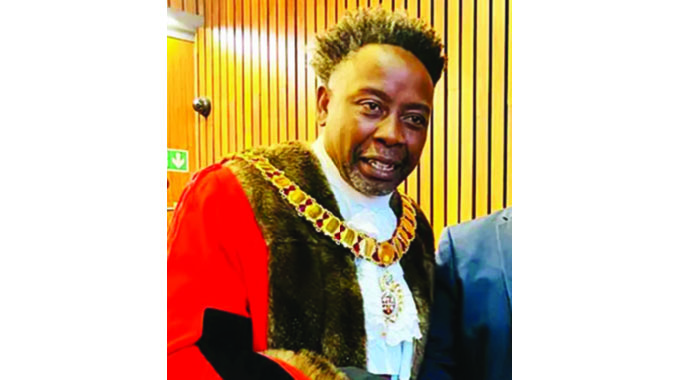Diaspora and the bane of festive season

Dr Masimba Mavaza
Being in a foreign land, wherever you may be, enriches you with unique richness in diversity of cultures, ethnicities and races in other countries.
As you live away from home, you experience multiple stresses that can impact your mental well-being, including the loss of cultural norms, religious customs, and social support systems.
There is always a big sack associated with adjustment to a new culture and changes in identity and concept of self.
The vacuum created by the change in every aspect of your daily life triggers mental illness and this is very common in Zimbabwean migrant groups.
Our families back home need to be attuned to the unique stresses and cultural aspects that affect immigrants in order to best address the needs of this increasing and vulnerable members of the family when they visit home during the holidays.
To understand and explore the interrelationship between the three aspects of the migrant’s experience and cultural congruity, both people at home and those in diaspora should find each other.
The complex interplay of the migration process, cultural bereavement, cultural identity, and cultural congruity, along with biological, psychological and social factors, is hypothesized as playing a major role in the increased rates of mental illness in most Zimbabweans in diaspora.
As we approach the Christmas holidays, red lines are already being drawn where people in the diaspora are judged to be proud and snobbish.
Social media is being used to demonise those coming from abroad for holiday.
A genuine shift from daily life is viewed as pride and instead of getting help, one is being castigated as a snobbishly proud diasporian who is pretending to forget his culture.
Johnsay Mukwidza from Corby narrated his ordeal with going home. “I stayed in the UK for over 20 years. My taste got used to the type of bread which anyone from Zimbabwe would as if they are eating cotton.
“Because my taste has changed so much, when I go back home, the food will be so salty and the bread will be too dry. The first time I complained about salt and dryness of the food I could feel the unsaid rebuke.
“I was later told that “ndiri kudada nekuvhaira”. Sometimes I had to force myself to eat the salty food and pay the consequences later.”
People now seriously lack tolerance. They just believe any one from abroad is showing off. This makes it difficult for people to visit home during holidays.
Most people start sending videos which are meant to denigrate the diaspora. The moment you touch down at the airport, there is already them and us. This labelling does not bring families together. It makes the holidays painful.
Our family members need to appreciate and survive in an increasingly multicultural world, shaped by the migrations of people of many different cultural, racial and ethnic backgrounds.
“People migrate for many reasons, including broadly political, socioeconomic and educational. The richness of this diversity of cultures, ethnicity, races and reasons for migration can make understanding experiences and diagnosis of illness challenging in people whose background and experience differ significantly,” commented Mr Kennedy Mupomba, a social scientist in the United Kingdom.
Departing from culture has an important role in the presentation of illness, and cultural differences impact upon the diagnosis and treatment of migrant populations in part due to the labelling and the dismissive attitude our families have adopted.
Additionally, it appears that the incidence and prevalence of psychiatric disorders varies among people of different cultural backgrounds due to an interplay of biological, psychological and social factors.
Peter Mudonhi from Hatfield in the United Kingdom shared his frustration.
“Imagine I have lived in the UK for over 25 years,” he said. “Each time I will be speaking in English I had to learn to alter my accent and my English. Now, I get home for a holiday and I am being labelled proud because I keep mixing English and Shona.
“I will be trying to speak in Shona throughout, but it will be tough. If only people understood the diaspora, going home will be fantastic.”
Michael Tandi from Wales said: “The migration process itself can be stressful, depending upon the type and cause of migration, and can affect the mental health of migrating individuals and their families.
“Issues of cultural bereavement and identity occur with increased frequency among migrants and their families. This is seen during holidays. The dilemma of the diaspora is that you have to be ready to fit back home and again to fit back in the diaspora. With our age we often get betrayed by some mannerism we exhibit.”
Lovemore Mandeya, a medical doctor in Scotland had this to say: “When I got to Zimbabwe, I realised that our brothers and sisters have changed. They viewed me as a very rich person. They all stopped buying or caring duties. They expected me to buy everything.
“I was surprised when I went for lunch, the whole clan followed me. I ended up spending £500 pounds for lunch. I asked my brother how much he you spend for lunch. He said six dollars.”
There is always such huge pressure being put on you to cause mental health. Coming home is supposed to be fun and a great reunion.
Migration can be defined as the process of going from one country, region or place of residence to settle in another.
The duration of this new settlement varies, there are individuals who relocate either semi-permanently or permanently to another country.
These are the most abused when they get back home. They are viewed as money makers and not simple family members.
The history of migration to Britain highlights some of the reasons why people migrate.
Significant migration to Britain started in 1979 and since then Zimbabwean immigration has been marked by periods of influx and efflux to and from Britain, as people have come to either settle permanently or work temporarily, with ultimate return to Zimbabwe as a goal.
Employers, especially in social health areas, are recruiting people from Zimbabwe to fill low paying jobs which were less attractive to the local population.
Some are still migrating to Britain for educational and economic reasons.
It has been hypothesized that social adjustment and the prevalence of mental illness in migrants may be influenced by the duration of the relocation, the similarity or dissimilarity between the culture of origin and the culture of settlement, language and social support systems, acceptance by the ‘majority’ culture, access and acceptance by the expatriate community, employment, and housing.
If the individual feels isolated from his or her culture, unaccepted by the ‘majority culture’ and has a lack of social support, a consequent sense of rejection, alienation, poor self-esteem may occur.
During the stages of migration, there may be factors that predispose individuals to mental disorders. Pre-migration factors include the personality structure of an individual, forced migration, and persecution, among others.
While many people are looking forward for holidays, many in diaspora are swimming in a pool of mixed feelings.
If only we can find each other and accept each other as families! We need to share what we have. We need to work together. No one in the diaspora is proud.
We miss home like anyone else and we pray for a great reunion. Exchange gifts! I give you something you give me something. Christmas is a merry period.









Comments